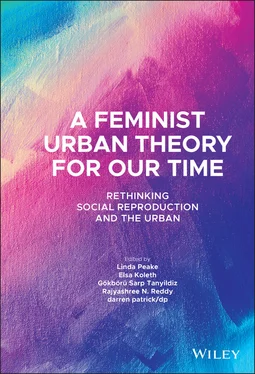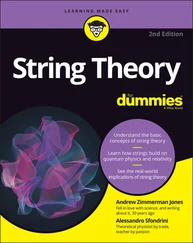2 Altintas, E. and Sullivan, O. (2016). Fifty years of change updated: Cross-national gender convergence in housework. Demographic Research 35 (16): 455–470.
3 Andrucki, M., Henry, C., McKeithen, W. et al. (2018). Beyond binaries and boundaries in ‘social reproduction’. Environment and Planning D: Space and Society. www.societyandspace.org/forums/beyond-binaries-and-boundaries-in-social-reproduction(accessed 1 April 2020).
4 Bakker, I. (2007). Social reproduction and the constitution of a gendered political economy. New Political Economy 12 (4): 541–556.
5 Beechey, V. (1977). Some notes on female wage labour in capitalist production. Capital and Class 1 (3): 45–66.
6 Benston, M. (1969). The political economy of women’s liberation. Monthly Review 21 (4): 31–43.
7 Berlant, L. (2011). Cruel Optimism. Durham, NC: Duke University Press.
8 Bhattacharya, T. (2017). Introduction: Mapping social reproduction theory. In: Social Reproduction Theory: Remapping Class, Recentering Oppression (ed. T. Bhattacharya), 1–20. London: Pluto Press.
9 Boserup, E. (1970). Woman’s Role in Economic Development. London: George Allen & Unwin.
10 Bourantani, E. (2017). Queering social reproduction: UK male primary carers reconfiguring care and work. Society and Space Open Site (31 October). https://www.societyandspace.org/articles/queering-social-reproduction-uk-male-primary-carers-reconfiguring-care-and-work(accessed 8 April 2020).
11 Brenner, N. (2014). Implosions/Explosions: Towards a Study of Planetary Urbanization. Berlin: Jovis.
12 Brenner, N. and Schmid, C. (2014). The ‘urban age’ in question. International Journal of Urban and Regional Research 38 (3): 731–755.
13 Briggs, L. (2017). How All Politics Became Reproductive Politics: From Welfare Reform to Foreclosure to Trump. Oakland, CA: University of California Press.
14 Bryan, D. and Rafferty, M. (2014). Financial derivatives as social policy beyond crisis. Sociology 48 (5): 887–903.
15 Buckley, M. and Strauss, K. (2016). With, against and beyond Lefebvre: Planetary urbanization and epistemic plurality. Environment and Planning D: Society and Space 34 (4): 617–636.
16 Burnett, P. (1973). Social change, the status of women and models of city form and development. Antipode 5 (3): 57–62.
17 Butler, J. (1993). Bodies that Matter: On the Discursive Limits of ‘Sex’. London: Routldege.
18 Butler, J. (2012). Precarious life, vulnerability, and the ethics of cohabitation. The Journal of Speculative Philosophy 26 (2): 134–151.
19 Byrd, J.A., Goldstein, A., Melamed, J. et al. (2018). Predatory value: Economies of dispossession and disturbed relationalities. Social Text 36 (2 [135]): 1–18.
20 Caffentzis, G. (2002). On the notion of a crisis of social reproduction: A theoretical review. The Commoner 5. www.thecommoner.org/back-issues/issue-05-autumn-2002(accessed 1 April 2020).
21 Caffentzis, G. and Federici, S. (2014). Commons against and beyond capitalism. Community Development Journal 49 (supplement 1): i92–i105.
22 Castells, M. (1983). The City and the Grassroots: A Cross-cultural Theory of Urban Social Movements. London: E. Arnold.
23 Chattopadhyay, S. (2018). Violence on bodies: Space, social reproduction, and intersectionality. Gender, Place & Culture 25 (9): 1295–1304.
24 Cixous, H. and Clément, C. (1986 [1975]). The Newly Born Woman (trans. B. Wing). Minneapolis, MN: University of Minnesota Press.
25 Daigle, M. (2019). The spectacle of reconciliation: On (the) unsettling responsibilities to Indigenous peoples in the academy. Environment and Planning D: Society and Space 37 (4): 703–721. https://journals.sagepub.com/doi/10.1177/0263775818824342
26 Daigle, M. and Ramírez, M.M. (2019). Decolonial geographies. In: Keywords in Radical Geography: Antipode at 50 (eds. T. Jazeel, A. Kent, K. McKittrick et al.), 78–84. Hoboken, NJ: John Wiley & Sons, Ltd.
27 De Angelis, M. and Harvie, D. (2014). The commons. In: The Routledge Companion to Alternative Organizations (eds. M. Parker, G. Cheney, V. Fournier, and C. Land), 280–294. Abingdon: Routledge.
28 de Leeuw, S. and Hunt, S. (2018). Unsettling decolonizing geographies. Geography Compass 12 (7): 1–14.
29 Derickson, K. (2018a). Masters of the universe. Environment and Planning D: Society and Space 36 (3): 556–562.
30 Derickson, K. (2018b). Urban geography III: Anthropocene urbanism. Progress in Human Geography 42 (3): 425–435.
31 Derrida, J. (1978). Writing and Difference (trans. A. Bass). Chicago, IL: University of Chicago Press.
32 Duarte, M.E. and Belarde-Lewis, M. (2015). Imagining: Creating spaces for Indigenous ontologies. Cataloging & Classification Quarterly 53 (5–6): 677–702.
33 England, K. (1994). Getting personal: Reflexivity, positionality and feminist research. The Professional Geographer 46: 80–89.
34 Esson, J., Noxolo, P., Baxter, R. et al. (2017). The 2017 RGS‐IBG chair’s theme: Decolonising geographical knowledges, or reproducing coloniality? Area 49 (3): 384–388.
35 Fanon, F. (1961). The Wretched of the Earth. New York: Grove Press.
36 Faria, C. and Mollett, S. (2014). Critical feminist reflexivity and the politics of whiteness in the ‘field’. Gender, Place & Culture 23 (1): 79–93. https://www.tandfonline.com/doi/abs/10.1080/0966369X.2014.958065
37 Faria, C. and Mollett, S. (2018). The spatialities of intersectional thinking: Fashioning feminist geographic futures. Gender, Place & Culture 25 (4): 565–577.
38 Federici, S. (2018). On reproduction as an interpretative framework for social/gender relations. Gender, Place & Culture 25 (9): 1391–1396.
39 Federici, S. (2019). On Margaret Benston: The political economy of women’s liberation. Monthly Review 71 (4): 45. www.monthlyreview.org/2019/09/01/on-margaret-benston(accessed 8 April 2020).
40 Feldman, S., Geisler, C.C., and Menon, G.A. (2011). Accumulating Insecurity: Violence and Dispossession in the Making of Everyday Life. Athens, GA: University of Georgia Press.
41 Ferguson, S., Lebaron, G., Dimitrakaki, A. et al. (2016). Introduction. Historical Materialism 24 (2): 25–37.
42 Ferguson, S. (2020). Women and Work: Feminism, Labour, and Social Reproduction. London: Pluto Press.
43 Fernandez, B. (2018). Dispossession and the depletion of social reproduction. Antipode 50 (1): 142–163.
44 Floyd, K. (2016). Automatic subjects: Gendered labour and abstract life. Historical Materialism 24 (2): 61–86.
45 Goodfellow, T. and Owen, O. (2018). Taxation, property rights and the social contract in Lagos. IDEAS Working Paper Series from RePEc. www.search.proquest.com/docview/2059058830(accessed 6 April 2020).
46 Hapgood, K. and Getzels, J. (1974). Planning, Women, and Change. Chicago, IL: American Society of Planning Officials.
47 Haraway, D. (1988). Situated knowledges: The science question in feminism and the privilege of partial perspective. Feminist Studies 14 (3): 575–599.
48 Harding, S. (1986). The instability of the analytical categories of feminist theory. Signs: Journal of Women in Culture and Society 11 (4): 645–664.
49 Hart, G. (2018). Relational comparison revisited: Marxist postcolonial geographies in practice. Progress in Human Geography 42 (3): 371–394.
50 Harvey, D. (2014). Cities or urbanization? In: Implosions/Explosions:Towards a Study of Planetary Urbanization (ed. N. Brenner), 52–66. Berlin: Jovis.
51 Hayden, D. (1983). Capitalism, socialism and the built environment. In: Socialist Visions (ed. S.R. Shalom), 59–81. Boston, MA: South End Press.
52 Hayden, D. and Wright, G. (1976). Architecture and urban planning. Signs: Journal of Women in Culture and Society 1 (4): 923–933.
53 Hayford, A.M. (1974). The geography of women: An historical introduction. Antipode 6 (2): 1–19.
Читать дальше

![Михаил Лермонтов - A Hero of Our Time [New Translation]](/books/27671/mihail-lermontov-a-hero-of-our-time-new-translati-thumb.webp)










